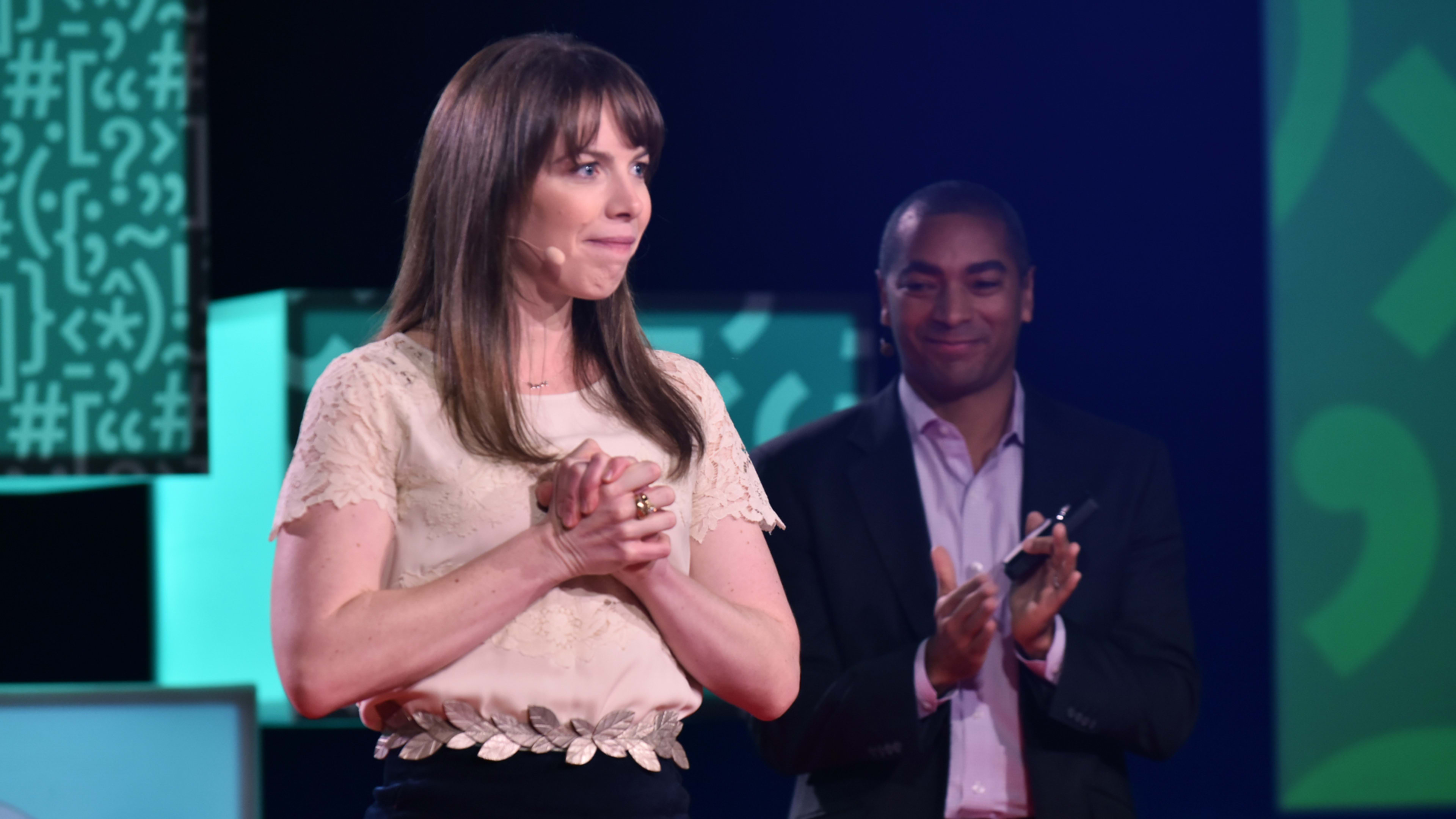Lucy and Paul Kalanithi fell in love in medical school. Lucy’s name was picked at a raffle during a charity benefit. Her prize was to go a date with Paul, a scientist with a keen interest in literature and philosophy. Early in their relationship, they bonded by opening up to each other about how it felt to lose a patient or share a difficult diagnosis.
Paul, who went on to become a neurosurgeon and author the book When Breath Becomes Air, passed away at the age of 37 last year, leaving behind an infant daughter. He was diagnosed with lung cancer a few years earlier, after experiencing symptoms that included weight loss and a persistent cough.
At TEDMED in Palm Springs this week, Lucy opened up about the toughest medical decisions they had to make in the final months. During their last visit to the hospital, she recalled Paul turning to her and uttering “I’m ready.” He had made his wishes clear to her that he did not want CPR or to be resuscitated. “What he wanted was to hold our baby daughter,” Kalanithi said. This experience, among others, prompted her to think deeply about lessons to live by as a wife, mother, and physician. She shared these learnings with the audience.
Reframing The Paperwork
Rather than viewing advanced directives and other forms as reminders of Paul’s illness, the couple saw a potential opportunity to come together. “The paperwork became a tangible part of our love story,” she said.
For Lucy, the process of filling out forms together was an act of love not unlike their marriage vows, when they promised to support each other in sickness and in health. Lucy recalled feeling reinforced in her ability, both legally and emotionally, to honor her husband’s wishes in life and in death.
Finding A Doctor Who Listens
After Paul’s death, Kalanithi received more than a dozen bouquets of flowers. She only sent one: To his oncologist.
“I am forever grateful that Paul’s clinicians didn’t think they needed just to fix things for us,” she told the audience. Instead, his oncologist counseled the couple through the difficult choices and supported Paul’s goals. As a doctor, Kalanithi says it has become increasingly important to her to treat her own patients in a similar manner. She’ll routinely ask them questions like, “Are you more worried about quality of time or quantity?”
“It’s our choice,” she stressed. “That’s true in death and throughout our lives.”
Accepting Joy And Sadness At The Same Time
Many of the discussions we have about death explore human emotions ranging from fear to sadness. But Kalanithi also found ways to derive joy amid the grief and sleepless nights. “We learned to accept both,” she said. “When Paul told me, ‘It will be okay,’ it didn’t mean we could cure his illness.”
Now Lucy experiences joy leaving flowers on Paul’s grave while their daughter runs around on the grass. She builds bonfires on the beach and practices mindful meditation. “I tell my daughter, Cady, that engaging in a full range of experience, both love and loss, is what we’re suppose to do. Being human doesn’t happen despite suffering, it happens within it.”
Recognize your brand’s excellence by applying to this year’s Brands That Matter Awards before the early-rate deadline, May 3.
